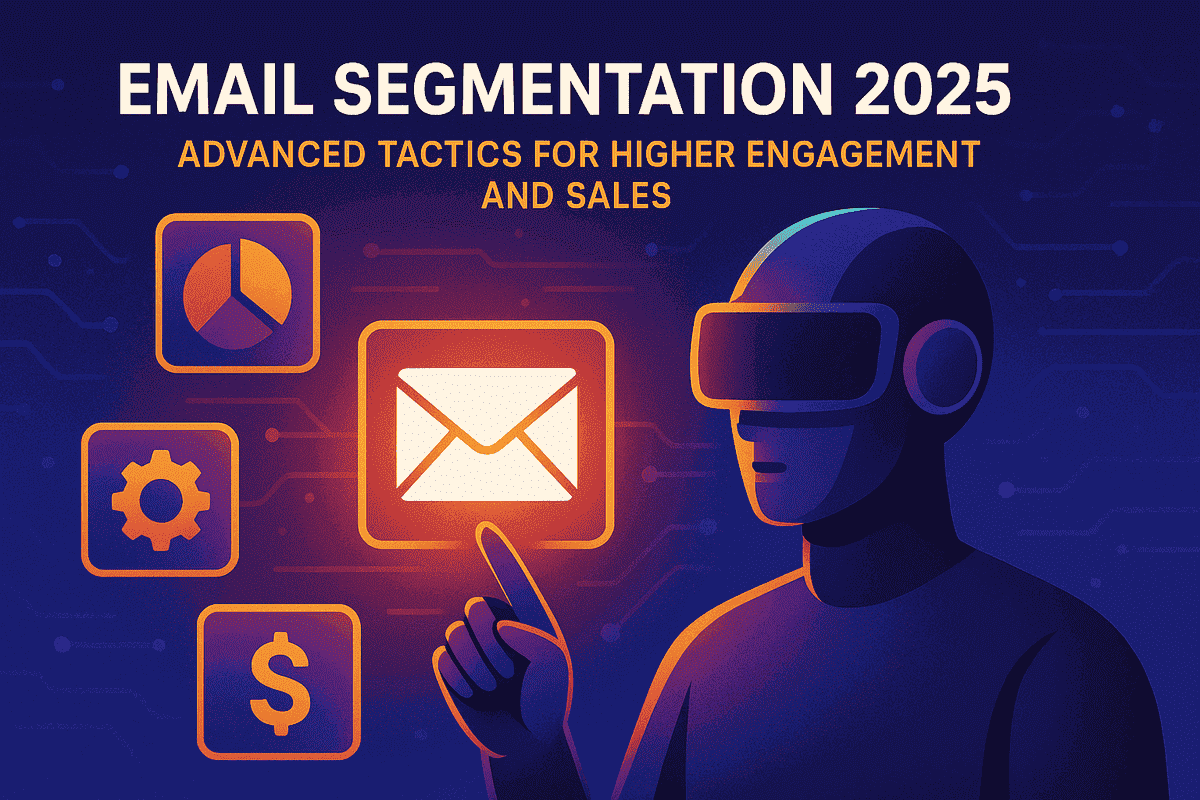"When you talk to everybody, you talk to nobody." – Meredith Hill
Today, in 2025, this line has never been truer—particularly in the realm of email marketing. Small business owners throughout the U.S. are realizing that email segmentation is no longer a choice—it's a must. Sending the same message to your entire list is a ticket to unsubscribes and spam folders.
But what if your emails could seem as though written specifically for the reader?
That's the magic of segmentation. And now, it's more intelligent, quicker, and more powerful than ever.
What Is Email Segmentation?
Email segmentation is the process of segmenting your email list into smaller, highly focused groups based on common attributes.
Segments can be:
- purchase behavior
- Location
- Email engagement
- Industry or job title
- Customer lifecycle stage
Rather than sending a blanket blast, you customize messages to what truly resonates with each segment.
Why SMBs Need to Adopt Segmentation in 2025
Still blasting the same message to all? That's losing you clicks, conversions, and customers.
Here's why segmentation is more important than ever:
- Greater Open Rates: Segmented campaigns can experience 2x–3x higher open rates.
- Increased Sales: Behavior-targeted emails drive purchases up to 760%.
- Fewer Unsubscribes: Irrelevant emails are the #1 unsubscribe reason.
- Improved Inbox Placement: Engaged segments enhance deliverability.
With consumer expectations increasing and inboxes more full than ever before, hyper-personalization isn't a nice-to-have—it's a must.
Types of Email Segments That Drive Results
Let's examine segmentation types U.S.-based small businesses can implement today:
1. Behavior-Based Segments
- Opened last email
- Clicked a specific product link
- Abandoned cart
2. Demographic Segments
- Age
- Location (perfect for local promotions!)
- Gender
3. Purchase History
- Repeat buyers
- High-spenders
- First-time buyers
4. Engagement Level
- Highly engaged
- Dormant/inactive
5. Customer Journey Stage
- New subscriber
- First purchase made
- Loyalty program member
Step-by-Step Guide: Setting Up Segmentation That Works
Ready to get started on the right track? Use this 5-step segmentation plan:
Define Your Goal
What do you want this campaign to do? Sales? Clicks? Survey responses?
Choose a Segmentation Criterion
Begin with one—such as location or engagement level. Don't make it too hard.
Gather the Right Data
Make sure your email platform collects and stores data like clicks, purchases, and preferences.
Create Dynamic Segments
Use automation to update your lists in real-time based on user behavior.
Craft a Tailored Message
Write as if you're speaking directly to that group. Reference their actions, location, or interests.
Best Practices for Hyper-Specific Targeting
Here's how to make segmentation pay off:
- Use Tags & Custom Fields: These enable you to segment on custom rules.
- Survey Your List: Ask your subscribers what content they want.
- A/B Test Subject Lines: Various segments reply to various hooks.
- Automate Re-engagement Campaigns: Wake up your dormant subscribers.
- Personalize CTAs: Tailor your call-to-action to each segment's intent.
Common Mistakes to Avoid
Segmentation works—when done correctly. Avoid these newbie mistakes:
- Using old data
- Segmenting without a strategy
- Making too many micro-segments
- Ignoring post-send analytics
- Not connected to CRM or eCommerce data
Email Segmentation Tools for 2025
These tools make segmentation smarter and faster:
Klaviyo
Best for eCommerce
ActiveCampaign
Pre-built behavior tracking
ConvertKit
Best for creators
Mailchimp
Simple to use for SMBs
HubSpot
Advanced segmentation + CRM
Pro tip: Select a platform that synchronizes with your customer data in real-time.
What's Next in Email Segmentation?
In the future, look for:
- AI-powered predictive segmentation
- Real-time content personalization
- Voice-activated email response
- Behavioral scoring across channels (not email alone)
The future is automated, predictive, and highly personal. If you're not segmenting in 2025, you're not playing.
FAQs About Email Segmentation in 2025
What is the ideal segmentation strategy for small businesses?
Begin with engagement level and purchase history—easy to measure and highly effective.
How do I keep my segments fresh?
Use dynamic segments that automatically update, but look at rules monthly.
Is email segmentation time well spent?
Yes—segmented campaigns return much greater ROI and customer satisfaction.
What tools assist with behavioral segmentation?
ActiveCampaign and Klaviyo are just two platforms that provide strong behavior tracking capabilities.
Can I automate segmentation?
You bet. Most contemporary platforms provide automation on the basis of real-time triggers and user activity.
Stop Emailing Everyone—Start Connecting with Someone
2025: Mass marketing dies. Relevance reigns. And segmentation is your passport to it.
The small companies that will succeed this year and beyond are those who know their audience at a personal level—and use email to talk directly to them.
So, ask yourself: Are you emailing a list… or people?
Ready to Take the Next Step?
Begin small. Segment by engagement. Personalize one message. Then watch your open rates rise and your relationships grow.

